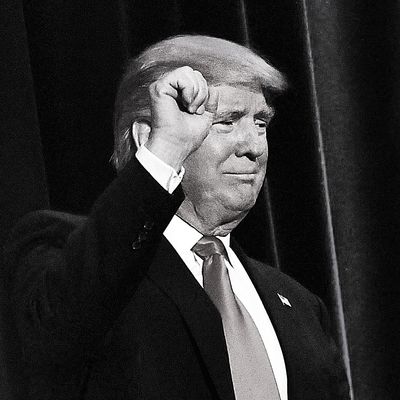
Last night, Paul Ryan, jubilant with the prospect that his long dream of dismantling the state may be finally at hand, called the election “a repudiation of the status quo of failed liberal progressive policies.” This morning, going further, he insisted Trump “just earned a mandate.” The rule of law entitles Ryan and his party to exercise the power they have won. But Ryan is seeking something more — the deference of a party that is seen as embodying the will of the people. He is not entitled to that.
Trump’s election cannot be called a decision by the voters to repudiate the liberal status quo because, for one thing, it was not a decision by the voters at all. The voters supported Clinton over Trump. The decision was made by the Electoral College, which as a matter of opinion can be called archaic, and as a matter of objective fact can be called anti-democratic. Again, the rules are the rules. But it remains the case that Ryan and his party have power not because of the will of the voters but despite it.
The most popular politician in America is Barack Obama, whose job approval, in the mid-50s, sits some 20 points higher than the unpopular Ryan or the even more deeply loathed party he leads. Even the notion that broader discontent with the economic results of Obama’s policy agenda benefitted Trump is difficult to square with the fact that his party performed much worse than it did in 2012, despite unemployment that has fallen a full point below the level Mitt Romney promised to bring it if he won, and the tight labor market has thrown off impressive gains in household income. Trump showed special strength in counties that have seen the greatest improvement in economic conditions.
Why, then, did Trump win several previously blue states and come within a couple million votes of Hillary Clinton? Every political result has multiple causes, but the most simple and clear explanation is that Trump mostly held his party’s base, and Clinton did not hold hers. Trump received not only fewer votes than Obama did in 2012, but fewer votes than Romney did, too. Preelection polls overstated the discomfort of white, college-educated Republicans, who mostly came home to Trump and saw him as, at least, a plausible leader of the free world.
The Trump campaign’s own perspective is that he benefited from Clinton’s ethical shortcomings:
The belief that Clinton is a dishonest and even criminal figure was the most important dynamic of the race. Polls showed, incredibly, that voters rated her less “honest and trustworthy” than her opponent — a man who lies with a frequency and brazenness unknown in American political history, who will baldly present steaks still bearing the label of the supermarket where they were purchased and tell the national media they are from his long-defunct line of branded steaks. This is a man facing trial for massive fraud for running a scam university.
Clinton’s own failures contributed to her image. Paranoia and terrible judgment caused her to bypass proper email etiquette, and greed led her and her husband to dangle their foundation and lucrative speaking business with the prospect of future access. It is fair that Clinton is not seen as a paragon of virtue. But it is absurd that she is seen as criminal, or coming within an order of magnitude of Trump’s dishonesty. That a figure of unparalleled secrecy and self-dealing managed to position himself as the candidate of relative honesty and good government is a staggering failure of the electoral process.
It took not only Clinton’s own contributions but months of attacks by Bernie Sanders on corruption related to big money and an allegedly “rigged” primary win. It took simultaneous sabotage by leaks by Russian intelligence and a cabal of right-wing FBI agents, the latter of which ultimately pressured the bureau’s director to shatter precedent and float charges against her in the race’s final lap. And it required the cooperation of the news media, which made the mundane email story the central frame with which it explained Clinton to America. The emails received more media attention than all policy issues combined. No wonder casual news consumers rationally concluded that Clinton was hopelessly corrupt. That perception cost her a decisive chunk of Obama’s 2012 voters and current job-approvers.
That is how politics goes. The Democratic Party probably should have encouraged more Clinton challengers who were more acceptable to its platform — a Joe Biden or (especially) Elizabeth Warren might have won. For now, the party has nothing, and the Republicans have everything because that is how the Constitution works. Republicans can defend a system that is not a pure democracy. But they can’t call it democracy.






























